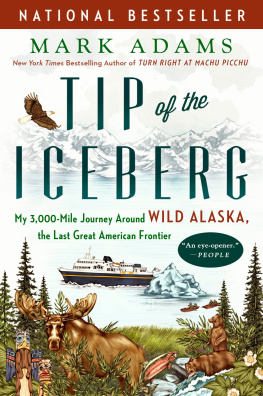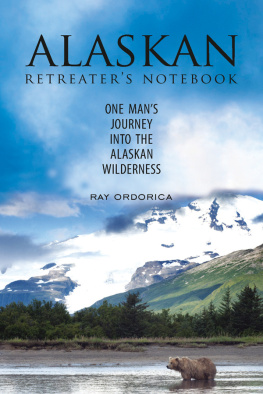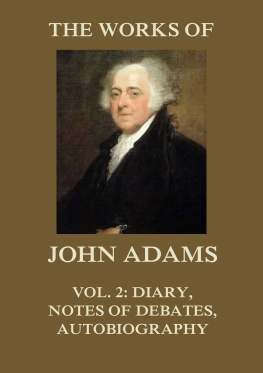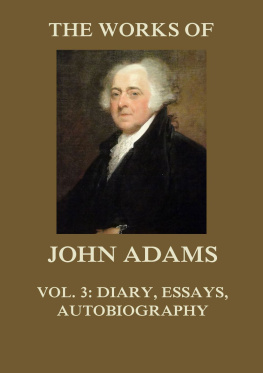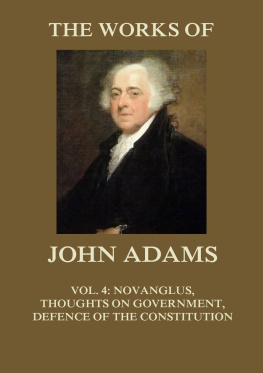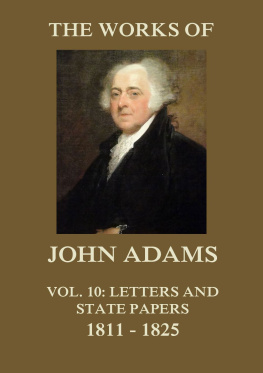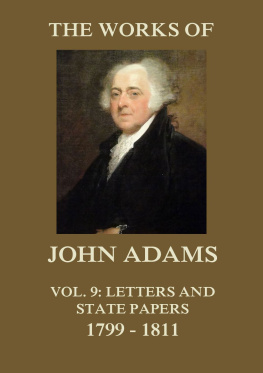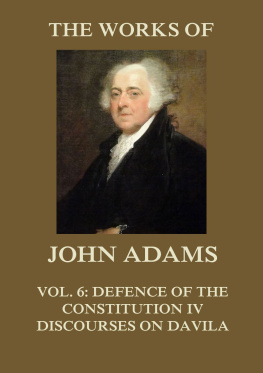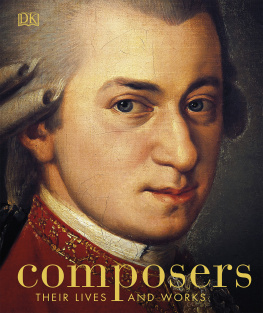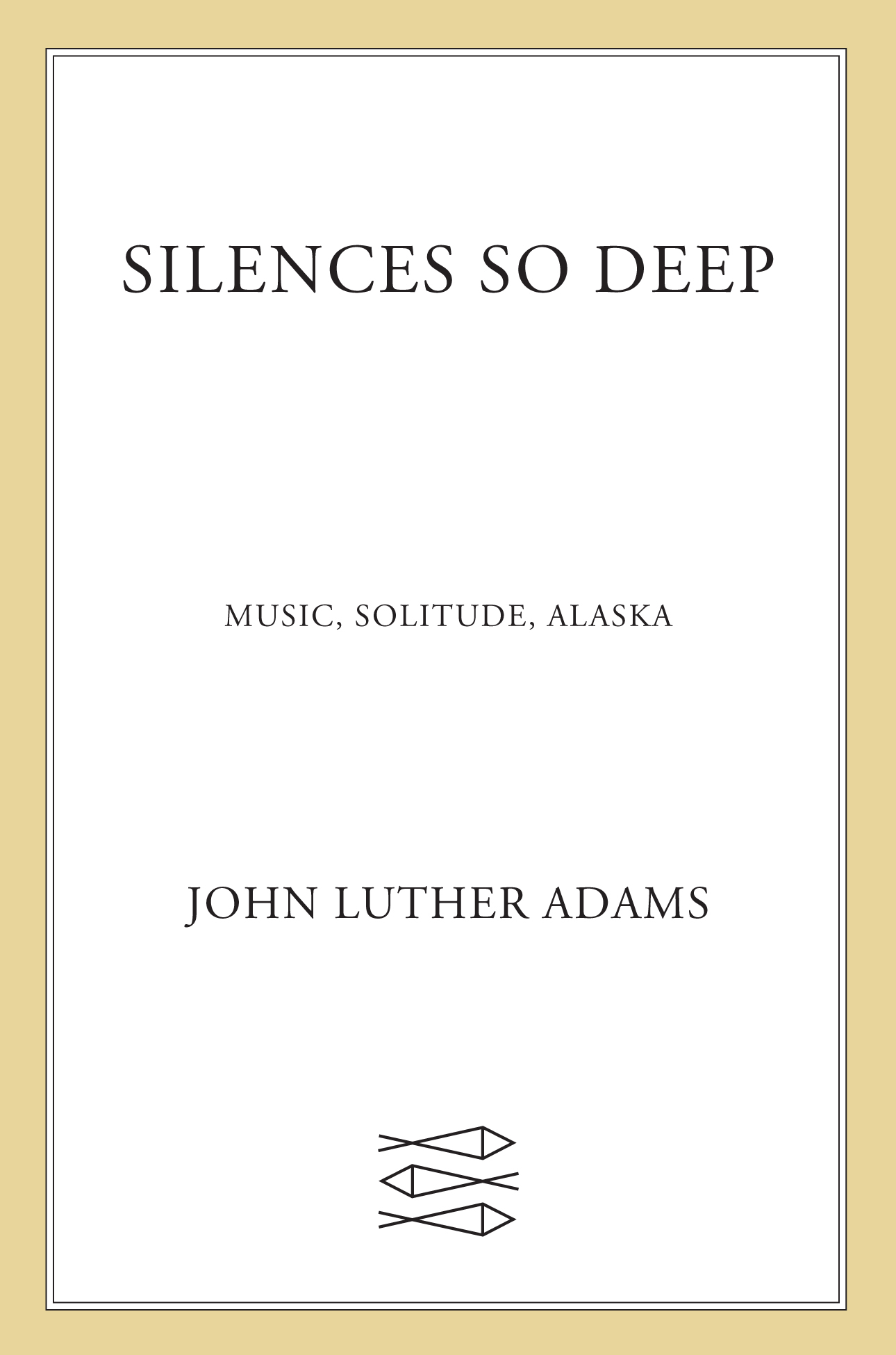The author and publisher have provided this e-book to you for your personal use only. You may not make this e-book publicly available in any way. Copyright infringement is against the law. If you believe the copy of this e-book you are reading infringes on the authors copyright, please notify the publisher at: us.macmillanusa.com/piracy.
downward in a freezing earth.
I am walking through a stunted spruce forest. On my back is a pack basket full of groceries. In each hand I carry a two-gallon jug of drinking water. Knee-high rubber boots keep my feet dry as I stride through the wet, spongy moss, but my broad-brimmed hat gives me precious little protection from the clouds of mosquitoes swirling around my head. Every hundred yards or so I stop, set the jugs down, and do a little tarantella to wave the bugs away. For a mile and a half I slog down the trailalong well-worn furrows, across a makeshift bridge over a small stream, up and down all the little dips and rises of the forest. At last I reach a short stretch of boardwalk. Soon I step onto the porch of a rough-cut cabin and set down my load. I am home.
I am twenty-eight years old. Ive come here running away. Running away from my family. Running away from the cities and the suburbs. Running away from academia, and from the competitive world of the music business. Coming here to this cabin in the boreal forest, I imagine that Im running away from everything. But Im actually running to everything. Here I will find the home I never had. I will also find my people, a ragtag and sometimes rowdy crew of musicians, poets, fishermen, and other kindred spirits we come to call the Ace Lake Sauna Society. And in time, I will come to discover the full shape of my lifes work here.
Music is my way of understanding the world, of knowing where I am and how I fit in. An unsettled childhood left me with a gnawing, inarticulate hunger to find my real home and familythe place to which I would truly belong, and the people with whom I would share ties deeper than blood. In Alaskawhere I lived for four decadesI found both.
In my twenties and into my thirties (in the 1970s and 80s), I was a full-time environmental activist. The small role that I played in the passage of the Alaska National Interest Lands Conservation Act (the largest land preservation law in history) and in helping prevent destructive dams, highways, mining, and oil drilling in Alaska remains among the most satisfying experiences of my life.
But the time came when I realized that I had to choose between a life as an activist and a life as an artist. In that moment, I decided that someone else could take my place in politics; and no one else could make the music I imagined but me. So I took a leap of faith, in the belief that music and art can matter every bit as much as activism and politics.
An Inuit hunter scanning the tundra for game will tell you that you learn the most by watching the edges. In Alaska I imagined I could work on the outer edge of culture, drawing my music more directly from the earth. I listened for that music in the mountains and on the tundra, on the shoulders of glaciers and the shores of the Arctic Ocean, and in the northern forest, learning the songs of the birds.
From the moment I arrived in Alaska, at the age of twenty-two, I knew I would live there. And for much of my life, I imagined I would die there. But the deaths of two dear friends, changes in my own health, and a shrinking sense of possibility in Alaskan society eventually compelled me to leave. At the turn of the new century, as climate change began to accelerate, even the extreme cold that made us feel special as Alaskans began to recede. Alaska was becoming too much like the country I had tried to escape.
Yet Alaska did not fail me. In spite of our broken frontier dreams, in spite of the destruction that we humans continue to visit on the land and the waters, the animals and the climate, Alaska is still Alaska. Any failure I may have felt in leaving Alaska was a failure of my own imagination.
And now I stand alone, on a beach far to the south, listening to the Pacific. As each wave rolls inbooming, roaring, growling, hissingI listen to its voice: the unique contours of its rising and falling, its singular crescendo and diminuendo. I listen for the interval between this wave and the wave before it, and the one that comes after. I listen as the waves advance and retreat, melding and passing through one another, crashing like cymbals on the shore. I listen to the small stones clattering over one another, pulled inexorably back into the water that stretches away toward Asia.
I do my best to listen as intently, as deeply as I can. Even so, my mind wanders.
A plastic bottle among the rocks reminds me that there are vast islands of garbage drifting far out at sea. A strong gust of wind reminds me of the increasingly capricious weather, and of the storms that lash this and other shores with growing ferocity. The burning sunlight reminds me of melting tundra and expanding deserts, of diminishing polar ice and rising seas all over the earth.
How can I stand here today and not think of these things?
Yet, if you ask me if Im composing a piece about climate change, I will tell you: No. Not really.
Then is this music about the sea? Yes. Well, in a way But what I really hope is that this music is an ocean of its own, an expansive sea of sound that just may carry the listener away into an oceanic state of mind.
As a composer, I believe that music has the power to inspire a renewal of human consciousness, culture, and politics. And yet I refuse to make political art. More often than not political art fails as politics, and all too often it fails as art. From the titles of my workssongbirdsongs, In the White Silence, Become Oceanits clear that I draw inspiration from the world around me. But when I enter my studio, I do so with the hope of leaving the world behind, at least for a while. Of course, its impossible to sustain that state of grace for long. Inevitably, thoughts intrude: Sometimes I think about people, places, and experiences in my lifethe independent souls and the frozen stillness, the solitude and camaraderie I knew in Alaska. Sometimes I think about the larger state of the world, and the uncertain future of humanity. And sometimes I think about the smaller world just outside my door.
If my music can draw people to be fully present, to listen deeply to this world that we share, then I will have done what I can as a composer to help us navigate this perilous era of our own creation.
For me, it all begins with listening.
Early on the evening of April 4, 1968, while standing on the balcony of his motel room in Memphis, Tennessee, Martin Luther King, Jr., was assassinated. Two years later, on the anniversary of the assassination, my girlfriend and I climbed over the locked iron gate of our all-white boarding school on the north side of Atlanta and hitchhiked downtown to join the candlelight vigil at Ebenezer Baptist Church. She was a regular volunteer there in Dr. Kings parish, and we were both frequent participants in civil rights and antiwar demonstrations around the city.


